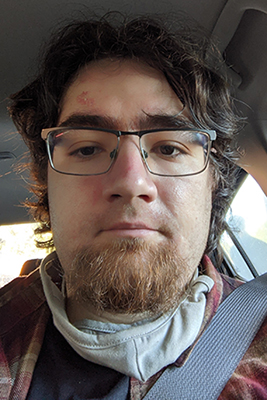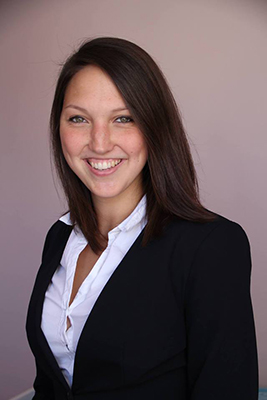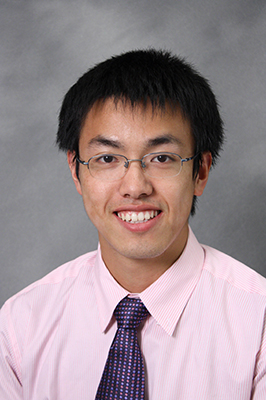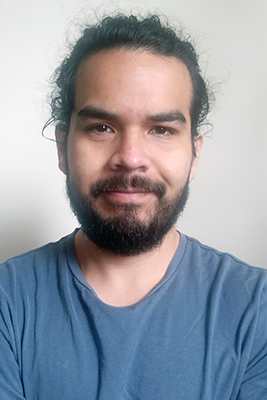Amid the Pandemic, Virtual CS Postdoc Symposium Provides Training and Connections
March 16, 2021
Contact: cscomms@lbl.gov
Last month, 20 postdoctoral fellows from across the Computing Sciences Area presented their work in exascale computing, computational science, machine learning, quantum computing, data management and analysis, and much more at Berkeley Lab's Computing Sciences (CS) 2021 Postdoc Symposium.
The event, now in its second year, is designed to provide the participants with communications training, mentorship, and an opportunity to present their research in a public forum. The participants worked with their mentors over several weeks, receiving feedback and pointers on their presentations. Because of the global pandemic, all of the symposium events were held virtually.
“Making a presentation to a scientifically literate but non-expert audience is one of the most important skills you can develop as a scientist,” said David Brown, Director of Berkeley Lab’s Computational Research Division (CRD). “We created the CS Area Postdoc Symposium program to make sure that our postdocs complete their tenure at Berkeley Lab with those skills under their belts.”
Here’s what some of the postdoc participants had to say about their experience:

Doru Popovici. Watch Popovici's symposium presentation
Doru Popovici, Computational Chemistry, Materials Science, and Climate
I decided to participate in the CS 2021 Postdoc Symposium because I wanted to show people all of the interesting work that I have done in the past two years at Berkeley Lab. I chose to do my postdoctoral work here because I wanted to apply my knowledge of Fourier transforms to real-world applications. By sharing my approach, I hope that others can benefit.
Fourier transforms are well-known mathematical kernels used in a variety of applications. When scientific codes are optimized for efficient computing, the Fourier computation is typically isolated as one of the computation steps. My thesis argues that the Fourier transforms should be optimized with other compute steps in big scientific simulations because isolating this step means that opportunities for improving code execution times can be overlooked resulting in wasted performance. After successfully arguing this point for my dissertation, Berkeley Lab offered me a multitude of real-world applications to work on. In my CS Postdoc Symposium presentation, I talked specifically about my work with density functional theory, but I believe that similar approaches could be applied to other codes.
I would highly recommend this program to other postdocs. I found it really helpful, especially the presentation prep sessions with senior scientist and department head Deb Agarwal. She showed a lot of patience and offered really good feedback that made my presentation stronger. Rather than presenting my work in step-by-step technical details, I realized that it is more effective to focus on the big picture and just hint at the details. If anyone is interested in a more detailed explanation, then a subsequent meeting with a whiteboard (in post-COVID times) is useful. I really appreciated Deb’s advice.

Lisa Claus. Watch Claus' symposium presentation
Lisa Claus, Scalable Solvers
Due to the shelter-in-place order, I didn't have a lot of chances to present my research; so when CRD Director David Brown announced the CS Postdoc Symposium in an all-hands meeting, I was excited and decided to participate. In addition to the presentation aspect of the program, I liked the preparation process where I received great feedback on my slides, presentation style, and useful tips about how to give a good presentation.
I came to Berkeley Lab to work on an Exascale Computing Project called STRUctured Matrix PACKage (STRUMPACT), a software library that serves well-to-solve large sparse linear systems needed for simulations of various applications from climate modes to electromagnetism. This work is really exciting because I have the opportunity to learn a lot of new things. Besides being excited for the work itself, I enjoy being in a collaborative and supportive environment where everyone — from early-career staff all the way to the Division Director — takes the time to talk to you.
During the Postdoc Symposium presentation preparation, David Brown was my advisor. Having a division director look through my slides, listen to my presentation, and give me feedback based on that made me feel a lot more comfortable, prepared, and confident in giving the talk. He gave me useful ideas on preparing better slides for scientific talks. I learned how important the first slide and the presented motivation for the talk are.
I definitely recommend that other postdocs participate. It is a great way to practice giving a talk to a broader computing scientist audience and get exposed to other lab researchers that might be interested or benefit from your research. I hope to participate again next year to not only have this "virtual" presenting experience but also practice a presentation in person.

Galen Wang. Watch Wang's symposium presentation
Galen Wang, Center for Computational Science & Engineering
Because I started my career as a Berkeley Lab postdoc remotely, in the middle of a global pandemic, I thought participating in the CS Postdoc Symposium would be a nice opportunity to get to know other people at the Lab, learn about the research that they’re doing, and have others get to know me. After this experience, I would definitely recommend others participate, especially those who are new to the Lab.
For this symposium, the Lab organized a series of events: a kick-off meeting, slide laydowns, dry runs, and final presentations. Along the way, senior scientists even took the time to help us make our presentations better. I really didn’t expect them to spend so much time helping us. I think this made the event really successful, and I really appreciated their help. I received a lot of feedback that helped guide me to better structure my talk.
I wanted to do my postdoc work at Berkeley Lab because I wanted to study the hydrodynamic effects of complex fluids, and the fluctuating hydrodynamics code developed in the Center for Computational Science & Engineering (CCSE) is a good framework to study hydrodynamics efficiently. In the future, I hope I can apply my knowledge of colloid suspensions, a type of complex fluid, to increase the capability of the current code.

Oscar Antepara. Watch Antepara's symposium presentation
Oscar Antepara, Applied Numerical Algorithms
The CS Postdoc Symposium was an excellent opportunity to share the research that I am doing at Berkeley Lab and an opportunity to receive feedback from senior scientists about how to give a research talk. This is why I wanted to participate.
At the Lab, my work is related to developing, implementing, and analyzing numerical methods related to computational fluid dynamics using high-performance computing systems. Before joining Berkeley Lab, I did my Ph.D. in Barcelona, Spain, where I became interested in computational fluid dynamics and its application to scientific and engineering problems. I decided to join Berkeley Lab because it is a recognized institution in numerical modeling, simulations, and high-performance software implementations for extreme-scale computing systems. It has also allowed me to collaborate with world-leading scientists to solve challenging scientific and engineering problems using the latest computing systems.
I would absolutely recommend this program to other postdocs. I found the feedback from my senior scientist advisors, John Shalf and David Brown, very useful. Their suggestions helped improve my slides and taught me how to keep key points in mind when giving the talk. I also received useful tips from my mentor Hans Johansen in the Applied Numerical Algorithms Group.
Watch all of the 2021 CS Postdoc Symposium presentations.
About Computing Sciences at Berkeley Lab
High performance computing plays a critical role in scientific discovery. Researchers increasingly rely on advances in computer science, mathematics, computational science, data science, and large-scale computing and networking to increase our understanding of ourselves, our planet, and our universe. Berkeley Lab’s Computing Sciences Area researches, develops, and deploys new foundations, tools, and technologies to meet these needs and to advance research across a broad range of scientific disciplines.







 Instagram
Instagram YouTube
YouTube